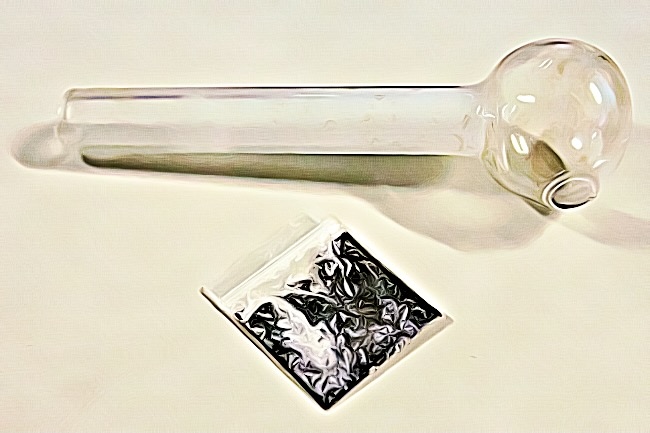Street drugs have been a topic of discussion in local schools, communities, and government institutions. Many have fallen into the trap of getting addicted to these substances, destroying lives, and leaving people with nothing. Addiction treatment centers are often filled with people who are addicted to hard drugs, which proves to be an issue post-treatment. Fortunately, people are starting to place importance on mental health to live a healthier lifestyle.
One of these drugs that develops an insane grip on a person’s life is methamphetamine. This stimulant is also known to many as meth, ice, or crystal meth. While initial times of use give off an incredible high that gets people addicted, this transforms into a brutal impact on the brain. In some cases, meth users can experience psychosis, which shifts how they perceive the world around them.
Meth-Induced Psychosis
Meth-induced psychosis is often similar to schizophrenia’s paranoia effects, and around 40 percent of meth users experience these symptoms. Meth psychosis also bleeds into other damaging mental health tendencies, such as alcohol abuse, increased episodes, suicide, and overall violent behavior. Addiction centers usually deal with the harsh effects of meth usage, which is damaging to many extents.
This form of psychosis typically develops when a person recreationally abuses meth, and those who have chronic use habits can have an even higher risk. Meth can often have a pre-psychosis stage that entails delusions and slight hallucinations about ideas and events. Shortly after, full-blown psychosis occurs, including many hallucinations due to the brain being damaged by addiction to the substance.
Those dependent on the drug and use it in high dosages can make things worse over time. Additionally, taking meth at a young age and experiencing traumas can aggravate the symptoms people experience. Continued use will always be worse than finding addiction treatment, as even recreational meth use can develop severe symptoms in a person.
Meth Psychosis Symptoms
As most drugs do, using meth can severely damage cognitive processes due to its chemical nature. The drug is brutal in its chemical composition, which means many of the brain’s functions are affected by its use. While common side-effects of meth’s high are lacking an appetite, being unable to sleep, and feeling “wired,” the psychosis side is the less-desired effect.
The psychosis induced by meth use is often known as a debilitating mental health condition because it affects how people live. An intervention has to be done to save a meth user’s life from spiraling out of control and becoming a slave to the psychosis caused by brain damage.
Some of the telltale symptoms of this psychosis are delusions, hallucinations, agitation, and intense paranoia. Delusions come in the form of irrational beliefs and thoughts, which have no proof of existence. Some of those who develop delusions will often believe they are always being watched or live in fear because of unknown forces.

Hallucinations can often be tactile or visual, meaning that they can believe their skin is being burnt or eaten by insects, or they might see monsters or other entities they believe to be real. These perceptions of reality often cause those addicted to meth to pick at their skin or harm themselves because of what they think they are feeling.
Agitation also occurs as a result of meth use, and this is due to being unable to sleep and eat properly. Without a healthy lifestyle, drug users often cannot relax or sit still and appear to be in shifting moods and easily irritated. They might also become violent as a result of this feeling.
Paranoia can also develop, which is one of the more common symptoms of meth and drug use. Users might think that those close to them are planning something or even convince themselves that the world is against them. Therefore, people high on meth become aggressive and violent because of this paranoia that something is brewing behind the scenes.
Risk Factors that Develop Meth-Induced Psychosis
The common misconception of meth is that recreational use is safe enough not to develop severe symptoms. However, meth is one of the most addictive substances that is difficult to treat. Addiction centers often work hard to produce programs to help meth addicts steer clear of this drug, as it has a certain allure that sucks people in each time. There are also risk factors that can develop more pronounced psychosis symptoms, increasing the damage done to a person’s cognitive processing.
Meth abuse is often the top risk factor that develops psychosis, as increased use will always boost a person’s chances of contracting this illness. Using more considerable quantities usually means a more manageable case of brain damage compared to those who use less or don’t use it at all.
The age a person begins using meth is also going to affect the way people experience psychosis. Teens who start using it will often feel more severe reactions to the drug, which can carry on to later life and cause increased damage. Additionally, childhood traumas can make people develop mental health issues amplified by their drug use.
Mixing meth with other drugs also speeds up the dependency on substances, which is why drinking or smoking marijuana while on meth isn’t recommended. The overlapping effects can often cause severe mental illnesses in people, which are challenging to treat once these get serious.
Sleep deprivation also increases the risk of developing psychosis, as sleep acts as a reset for the body. Proper rest often makes mental health improve, and meth takes this away during its use, making the effects of methamphetamines more severe.
Lastly, family histories of mental illnesses and psychotic disorders can be more at risk of developing meth-induced psychosis. While it will occur in users one way or another, those who have a family history of illnesses like schizophrenia and other mental disorders can expedite its effects.
How Long Does Meth Psychosis Last?
Psychosis can last both long and short-term. Initial use can cause people to experience a few hours of heightened symptoms, while chronic abusers can experience them for months on end. Some people can experience one or two symptoms, while others might only see hallucinations due to using the drug.
Those who experience withdrawals from addiction to methamphetamines can often develop psychosis, which is why those trying to quit must go through a detoxification process. It is improbable that a patient can do any harm to others or themselves in a controlled environment. Once the chemicals have fully exited the person’s body, the psychotic symptoms disappear.
Treating meth-induced psychosis is difficult, and the first step is to run a detox on a person suffering from addiction. Continued use will only fry a person’s brain more because of the harmful chemicals put into the mix that aren’t regulated. Many addicted people might be hesitant or even hostile when seeking addiction treatment, which means that the proper approach must be taken. Since meth directly impacts the brain and its cognitive processing, this can kill cells and cause severe physical ability deterioration. These harmful effects are reasons why those using meth should be seeking help to stop using instantly.
Conclusion
Meth-induced psychosis is characterized by intense feelings of hallucinations, delusions, agitation, and paranoia. This drug is damaging to cognitive processes and can often speed up the deterioration of the brain. Initial periods of meth use can produce an addictive high, but insane feelings of discomfort shortly meet these periods because of psychosis and paranoia.
Sources:

